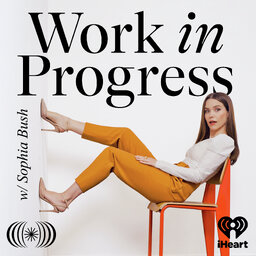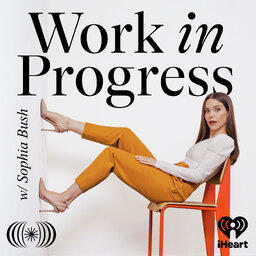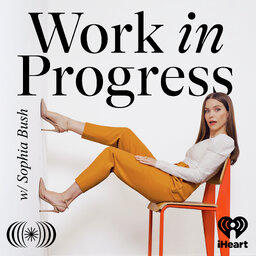On today's bonus episode Sophia tells you about some of her favorite organizations and activism opportunities; but first, she answers some of your questions about how to give back and about her own journey with activism.
In 1 playlist(s)
Work in Progress with Sophia Bush
Work in Progress with Sophia Bush features frank, funny, personal, professional, and sometimes even …Social links
Follow podcast
Recent clips

Work in Progress: Jeannie Mai
55:24

Work in Progress: Mika Brzezinski
1:01:11

Work In Progress: Sophia answers fan questions
23:52
 Work in Progress with Sophia Bush
Work in Progress with Sophia Bush